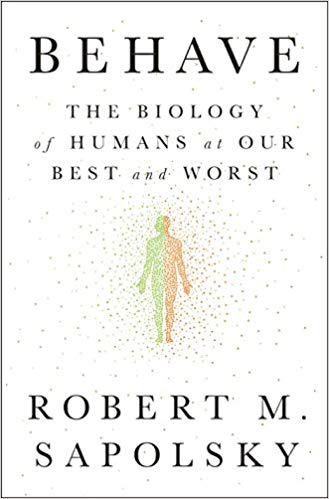Behave Audiobook by Robert M. Sapolsky

text
In 1859 Charles Darwin gave the globe a theory of life. A century later, evolutionary biologists began believing seriously concerning its effects for human actions. Richard Dawkins’s “The Egocentric Genetics” (1976) brought the resulting insights to the general public. Behave Audiobook by Robert M. Sapolsky Stream. Spirits were gone, and also free choice too. The master manipulators were the genetics. Bodies were minimized to plain lumbering robotics, as well as even the internal lives of our types became just one more repercussion of natural selection in a materialist globe.
The brand-new sight rapidly involved predominate, but on its own it gave also stark an account of behavior. Melvin Konner’s “The Twisted Wing: Organic Restrictions on the Human Spirit” (1982, with succeeding revisions) demonstrated how intriguing the science becomes when enhanced by the wet details of genetics, neurons and also hormones. Konner’s once student Robert M. Sapolsky has actually currently adhered to the exact same course. Sapolsky has created a quirky, opinionated as well as magisterial synthesis of psychology as well as neurobiology that integrates this complicated topic a lot more accessibly as well as totally than ever before.
Much of “Behave: The Biology of Human Beings at Our Ideal as well as Worst,” created by a man that disingenuously declares himself “eggheady, meek and amorphously pacifistic,” is the book you will be sorry for never having actually had in university. The scientific research includes hipster wit. Sapolsky composes of Jane Goodall blowing off “everybody’s socks in the 1960s by reporting the now-iconic fact that chimps make devices … Great, next the zoologists will certainly report that Rafiki convinced Simba to end up being the Lion King.” He sums up a chapter called “Us Versus Them” with “Provide the right-of-way to individuals driving cars with the ‘Mean people draw’ bumper sticker, and advise everyone that we’re all in it with each other against Lord Voldemort as well as your house Slytherin.” He berates us for choosing leaders making use of “implicit, automated aspects preferable to 5-year-olds choosing that must captain their boat on a voyage with the Teletubbies to Candyland.” Discussing why someone who sees a motion picture consisting of literally revolting photos becomes morally judgmental unless she washed her hands first, he imagines development as tinkerer: “Hmm, extreme negative affect generated by offenses of common behavior norms. Allow’s see … That has any kind of relevant experience? I understand, the insula! It does extreme adverse sensory stimuli– that’s like, all that it does– so let’s broaden its portfolio to include this ethical disgust business. That’ll work. Hand me a shoehorn as well as some air duct tape.” This is not your mother’s professor.
Of course lots of people would certainly have no idea what an “insula” is, but Sapolsky eases visitors delicately into the complexities of the mind by ceding a lot of “Behave” to the basics of neurobiology. We start in the first second before a behavior is created, our overview taking us confidently right into the amygdala, the dopaminergic system and also the frontal cortex. Behave Audio Book Online. We proceed the tour with events that occur mins, hours, days, months and also years ago, ultimately stretching back thousands of generations to the degree where Darwinian procedures describe why the systems that generate actions advanced in their particular, careless means. By the time guide returns from these increasing perspectives it has actually offered viewers the opportunity to feel astonishingly comfortable with a rich variety of fascinating neurobiology fundamentals.
Dutiful core themes penetrate the understanding. Sapolsky reprehends the sociobiologists of the 1970s for their extreme focus on genes. He hammers home the message that nerves, hormones, genetics, developmental experiences and transformative pressures should necessarily all be recognized, and that none of the relationships in between such factors and also any type of habits is straightforward. He summarizes crisply why calling the low-activity variation of the MAO-A gene a “warrior gene” is nonsensical: “Yikes, this is made complex.” Behavior biology is undoubtedly intricate, however Sapolsky streamlines the subject with a beautifully arranged as well as well-stocked store of expertise. He has such a light tone, so imperious a command of information as well as such a rich fund of narratives that we are brushed up promptly along to the last third of guide.